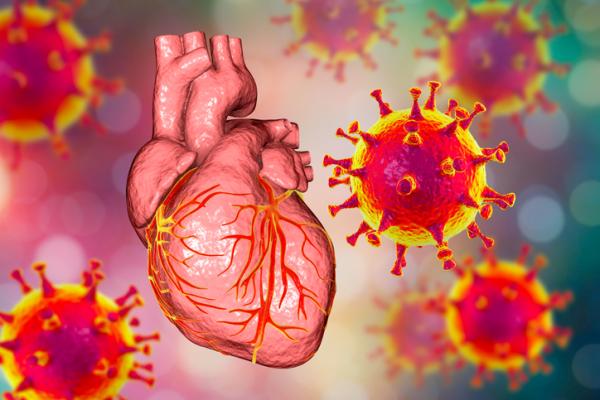
Getty Images
November 25, 2022 — A large study found that myocarditis after SARS-CoV-2 vaccination was rare but higher in younger males, especially after the second mRNA-1273 (Moderna) vaccine, suggesting that vaccine type, age and sex should be considered when vaccinating. The study is published in CMAJ (Canadian Medical Association Journal) https://www.cmaj.ca/lookup/doi/10.1503/cmaj.220676.
"In this study, we found higher observed rates of myocarditis after receipt of mRNA vaccines than expected, but absolute rates were low," writes Dr. Naveed Janjua, School of Population and Public Health, University of British Columbia and the British Columbia Centre for Disease Control, Vancouver, BC, with coauthors.
Researchers analyzed population health data from the BC COVID-19 Cohort, which included more than 10.2 million doses of mRNA vaccines administered to people aged 12 years and older from Dec. 15, 2020, to Mar. 10, 2022. Almost 7 million were BNT162b2 (Pfizer-BioNTech) doses and 3.2 million were mRNA-1273 (Moderna) doses. The researchers identified people who were admitted to hospital or visited an emergency department because of myocarditis within 7 and 21 days of receiving the vaccine.
On average, the rate of myocarditis 21 days after vaccination was 1.37 per 100 000 people compared with an expected rate of 0.39 per 100 000 people not vaccinated. The highest rates of myocarditis were in males (rate: 2.15/100 000), among those aged 18–29 (rate: 2.97/100 00), after the second dose (rate: 2.27/100 000 doses) and in people vaccinated with mRNA-1273 (Moderna) (rate: 1.75/100 000). Among males aged 18–29 who received the mRNA-1273 (Moderna) vaccine, the rate was 22.9/100 000 doses. After the third dose, rates of myocarditis were lower, including among people aged 18–29.
"The overall rates of myocarditis per 100 000 doses were still very low for both vaccine products," write the authors. However, they state that their findings "… support the preferential use of the BNT162b2 (Pfizer-BioNTech) vaccine over the mRNA-1273 (Moderna) vaccine for people aged 18–29 years."
A US analysis estimated that 11 000 COVID-19 cases, 560 hospital admissions, 138 ICU admissions and 6 deaths from COVID-19 could be prevented per million second doses of mRNA SARS-CoV-2 vaccine administered to males aged 12–29 years, compared with 39–47 expected cases of myocarditis after SARS-CoV-2 vaccination.
"[T]he benefits of vaccination against SARS-CoV-2 in reducing the severity of COVID-19, hospital admission and deaths far outweigh the risk of developing myocarditis. … Thus, continued vaccination of this group, along with monitoring of adverse events, including myocarditis, should remain the preferred strategy," the authors conclude.
For more information: https://www.cmaj.ca/
RELATED COVID/HEART DAMAGE CONTENT:
Getting to the Heart of COVID-19 Vaccination and its Cardiovascular Risks
COVID-19 Surges Linked to Spike in Heart Attacks
COVID-19 Fallout May Lead to More Cancer Deaths
Kawasaki-like Inflammatory Disease Affects Children With COVID-19
FDA Adds Myocarditis Warning to COVID mRNA Vaccine Clinician Fact Sheets
CMS Now Requires COVID-19 Vaccinations for Healthcare Workers by January 4
Cardiac MRI of Myocarditis After COVID-19 Vaccination in Adolescents
Small Number of Patients Have Myocarditis-like Illness After COVID-19 Vaccination
Overview of Myocarditis Cases Caused by the COVID-19 Vaccine
Case Study Describes One of the First U.S. Cases of MIS-C
NIH-funded Project Wants to Identify Children at Risk for MIS-C From COVID-19


 February 03, 2026
February 03, 2026 









